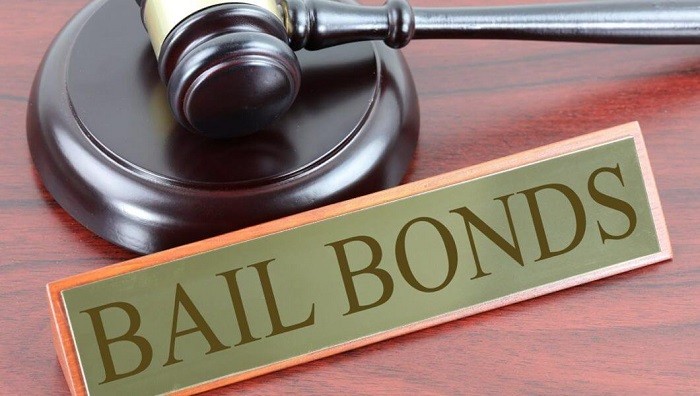Navigating the Lawful Labyrinth: Bail Bonds Explained for Beginners
Browsing the intricacies of the lawful system can usually seem like going across an overwhelming labyrinth, especially when it concerns comprehending Bail bonds. For beginners entering this strange terrain, understanding the intricacies of Bail bonds is crucial in making sure a smooth and enlightened process. From the basics of how Bail bonds function to the various kinds offered, each element plays a crucial function in assisting in the release of individuals awaiting test. As we dig deeper into this topic, quality will certainly be lost on the bail bond process, the associated costs, and valuable suggestions for properly engaging with bondsman.
Essentials of Bail Bonds
Bail bonds offer as a financial assurance that a defendant will show up in court as required. If the individual can not afford the full Bail amount set by the court, a bail bond representative can be gotten to offer the essential funds on their behalf.
Basically, a bail bond is a contract between the defendant, the court, and the bail bond agent. The agent agrees to pay the full Bail amount if the defendant fails to appear in court, in exchange for a non-refundable charge normally established at 10% of the complete Bail.
Kinds Of Bail Bonds
The most usual type is a money bond, where the offender or a family member pays the complete Bail amount in money. An additional option is a guaranty bond, where a bond bondsman pays the Bail on behalf of the defendant for a charge, typically around 10% of the overall Bail quantity. Understanding these different kinds of Bail bonds can aid individuals navigate the legal procedure more efficiently.
Bail Bond Refine Clarified
The bail bond process includes a collection of lawful steps that help with the release of an offender from custodianship pending their court look. When a person is apprehended, a court establishes a bond amount based on the seriousness of the supposed criminal activity and the likelihood of the defendant appearing in court. They can seek the services of a bail bondsman if the accused can not pay for the complete Bail quantity. The offender or their enjoyed ones pay the bail bondsman a non-refundable fee, usually a portion of the overall Bail amount, to protect a bail bond. The bondsman then posts the complete Bail quantity to the court, ensuring the offender's look in all court procedures.

Comprehending Bail Bond Expenses
Upon protecting a bail bond with a bondsman, people run into a crucial facet of the lawful process: the financial commitments connected to the bail bond. Bail bond expenses generally involve a non-refundable cost, generally around 10% of the complete Bail amount set by the court. For circumstances, if the court sets Bail at $10,000, the bail bond premium will certainly be $1,000. If the offender stops working to show up in court., this charge is the bondsman's fee for posting the complete Bail amount and thinking the danger.
Along with the costs, collateral might be required to safeguard the bail bond. Collateral can be in the type of residential property, valuable possessions, or a co-signer that guarantees repayment if the offender skips Bail. The collateral acts as a back-up prepare for the bail bondsman in instance the defendant absconds.
It's important for people looking for Bail bonds to totally recognize the prices involved and the terms of the agreement before proceeding. By being informed about bail bond expenses, individuals can navigate the legal process better and make educated choices.
Tips for Collaborating With Bail Bondsmen

Furthermore, it's necessary to give exact info regarding the accused and their situation. This includes details such as their complete name, day of birth, the place of their arrest, and the charges they are facing. bail bondsman dayton ohio. Offering incorrect or insufficient information can bring about Read More Here hold-ups in the bail bond process

Conclusion
Finally, recognizing the essentials of Bail bonds, the different types readily available, the procedure included, and the costs related to them is necessary for navigating the legal system. By dealing with Bail bondsmen and adhering to these ideas, individuals can ensure a smoother and much more efficient Bail procedure. It is important to be informed and knowledgeable when taking care of Bail bonds to avoid any kind of unnecessary difficulties or misunderstandings.
Basically, palmdale bail bonds a bail bond is a contract in between the accused, the court, and the bail bond representative. Another alternative is a surety bond, where a bail bondsman pays the Bail on part of the defendant for a charge, typically around 10% of the overall Bail quantity. The defendant or their liked ones pay the bail bondsman a non-refundable fee, normally a percent of the total Bail quantity, to safeguard a bail bond.Upon securing a bail bond with a bail bondsman, people experience a crucial aspect of the legal procedure: the economic obligations connected to the bail bond. Bail bond prices typically include a non-refundable charge, generally around 10% of the complete Bail amount set by the court.